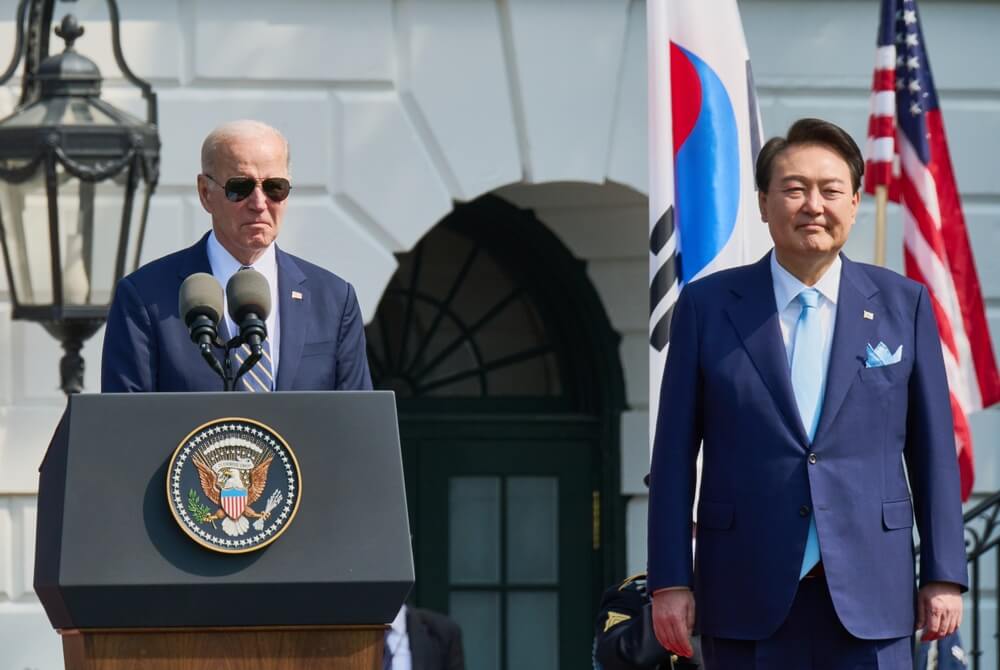The forthcoming summit between South Korea, China, and Japan does not hold the potential for significant expectations and breakthroughs in a region burdened by security tensions and economic pressures.
However, the leaders of East Asia's three largest economies and most influential security forces will renew the trilateral mechanism of cooperation on Monday after a five-year break, which is likely to be its greatest value.
But is it perhaps already too late for a new chance for stability in Northeast Asia?
None of the current participants were in a leadership position when the last trilateral summit took place in China in December 2019. Launched in 2008, this mechanism for dialogue on regional and global relations aimed to meet annually.
However, the outbreak of the COVID-19 pandemic and subsequent tensions between China and the West caused a five-year break.
“This summit will be a turning point for Korea, Japan, and China to completely restore and normalise three-way cooperation systems,” the Seoul government announced on the eve of the trilateral meeting it will host.
However, the limitations that objectively exist in the relationships between the summit participants exceed the optimism of the South Korean hosts.
Without Xi, the list of issues has narrowed
The Chinese head of state, Xi Jinping, will not be attending the meetings in Seoul. Beijing's first man has maintained the tradition of not attending any trilateral summits since their establishment.
This means that the participants will not have any topics on the agenda that fall exclusively within the Chinese leader's remit, particularly security, regional, and global foreign policy.
Issues of economic cooperation, the green agenda, and scientific and cultural exchange will remain for the Prime Ministers of Japan and China, Fumio Kishida and Li Qiang, and the President of South Korea, Yoon Suk Yeol.
These are the areas of great interest to all three parties, given that China is the most significant trading partner for both dialogue partners at the summit in Seoul. However, economic and other relations have declined over the past five years.
Japan and South Korea are responsible for much of the exodus of foreign investors from China in recent years due to business and security concerns, changes in regulations, and, above all, unfulfilled expectations of a rebound in the Chinese economy after a three-year lockdown.
China is coming to Seoul for the trilateral summit to try to win back at least some of the lost business
In 2023, nearly half of Japanese companies operating in China reduced their investments or did not invest at all. 40% of them believe that China's economic situation has deteriorated, even when compared with 2022 and the COVID pandemic lockdown.
South Korean companies have been leaving China, once a favourite investment destination, for a long time. Since 2016, almost half of the former investors have sold their operations.
In the last three years, car giant Hyundai has sold two of its factories in China and is on track to sell a third. Last year, new South Korean FDI in China almost stopped—a drop of almost 80% compared to 2022.
As a result, China is coming to Seoul for the trilateral summit to try to win back at least some of the lost business. To achieve the same goal, both Prime Minister Lee and President Xi frequently arrange meetings with the heads of major companies from the West, Japan, and South Korea, aware that the exodus of their businesses from China is concerning and requires the involvement of the highest levels of government.
New allies
The five-year break between the Northeast Asia trilateral meetings caused the participants to differ significantly from those of 2019, not only personally but also in terms of all other factors.
Japan and South Korea now have much more reason to act as a bloc towards China than they did five years ago. Their alliance has now taken on a strategic format.
Their summit with the US at Camp David last August marked the end of decades of tensions over the historical dispute during the Japanese occupation of South Korea (1910–1945). Thus, China no longer relies on the disruptive dispute between Tokyo and Seoul as a trump card to regulate relations in the region.
 The US will also be represented at Monday's East Asian summit, albeit not directly, as its growing influence in the region
The US will also be represented at Monday's East Asian summit, albeit not directly, as its growing influence in the region
Both Japan and South Korea have sided with the US to curb China's aggressive security and economic policies in the region, which Xi Jinping has been demonstrating since the beginning of his rule.
During the five-year break, Russian aggression against Ukraine took place. China sided with Moscow, and Western allies, including Tokyo and Seoul, strengthened their mutual relations, aligning them to support Ukraine.
At the same time, North Korea, as the biggest security threat in the region, has aligned itself directly with Russia and supports it militarily in its aggression, which further discourages China as its ally from reviving relations with its highly developed neighbours.
In this respect, Japanese Prime Minister Kishida's attempt to warm up relations with North Korea can only mean the potential loss of another lever of regional influence for China, on which it bases its policy of maintaining high tensions.
The US will also be represented at Monday's East Asian summit, albeit not directly, as its growing influence in the region, where Japan and South Korea are the most important cooperation partners, will hover over all issues.
The Seoul summit will also provide an opportunity for Japan and South Korea's leaders to obtain important input about China's strategic intentions in the region, which will undoubtedly come up in their July meeting with US President Joe Biden on the side-lines of the NATO anniversary summit in Washington.